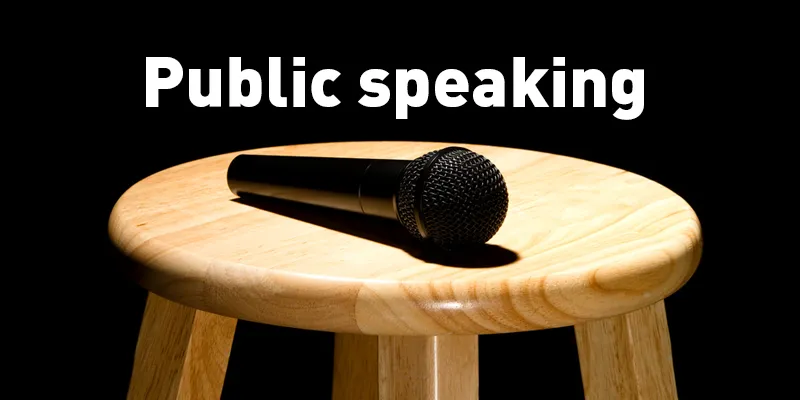5 things to do before your next meeting speech
No one likes listening to long, unorganised speeches. We have all been part of guest lectures and events where people have been asked to say a few words and end up speaking for an hour. Little of what they’ve said stays with us afterwards. So how do you ensure that, when the time comes, your own speech won’t have the same effect on your audience? When you find yourself in such a situation, here are a few tips you can use to ensure you are ready for it:

Image : shutterstock
Make a speech outline
Without a decent structure, your audience will be confused about you core message or lose interest entirely. Hence, an outline is vital. A planned outline will not only help you organise the flow of your speech but also help you audience understand it.
If you have five minutes to give your speech, you would want to organise intervals at every minute and offer milestones to the audience at the top of each minute. You get one minute for your introduction, during which you explain what you plan to say. Then you get 60 seconds each for your three main points. That last 60 seconds can be used either for a short conclusion or as a buffer in case you run long.
Chisel it only to what is necessary
Let’s say your upcoming speech is accompanied by a presentation. It is a general tendency for you to cover as much as you can in the little time that you have been allotted. Instead of trying to cover everything in your limited time slot, try to fit as many relevant points as you can. For example, if you have a five minute presentation, you should have may be two or three points that are most important to the discussion and explain them in detail.
What’s in it for them?
Make sure you speech answers this question. Why would your team or audience want to listen to you? Consider, for instance, that you are pitching for a sales deal. What is the decision maker looking for? Is it to sell the product? If yes, have you mentioned all the details of the product and mentioned attributes that will be most beneficial to your client?
Make it interesting, but not too interesting
It is always nice to hear a speech with a different opening than a monotonous “Good morning, team.” Be creative with your entry – it breaks the monotony. You can begin your speech with a quote, fact or even a joke (depending on the situation, tone and topic). By introducing the issue in the beginning, you gain everyone’s attention in the room. However, don’t be pretentious, cheesy, or vain in your speech. The opening speech isn’t the occasion for that, and doing this will make you look bad.
Make it personal
Every speech gives you a small window to connect with your audience on an emotional and personal level. Don’t be afraid to allow some emotion when you talk, however. Use it within the right context and only when it makes sense. Suppose your team has managed to complete a project well before the deadline, you might be happy and proud. So let it out!
An emotional connect not only lightens the mood of the meeting but makes people feel connected. Here is a quick example: “On the last note, I would like to say I am extremely proud of what we have achieved as a team and the challenges we’ve overcome together in such short time. Keep it up guys!”
Hopefully, these pointers help you prepare better for you next speech during a meeting. Remember, speaking is a skill. The more you plan, the better you will get and it will turn into a habit, and a good one at that. Are there any other rules you exercise before preparing for a meeting? Do share them in comments below.







